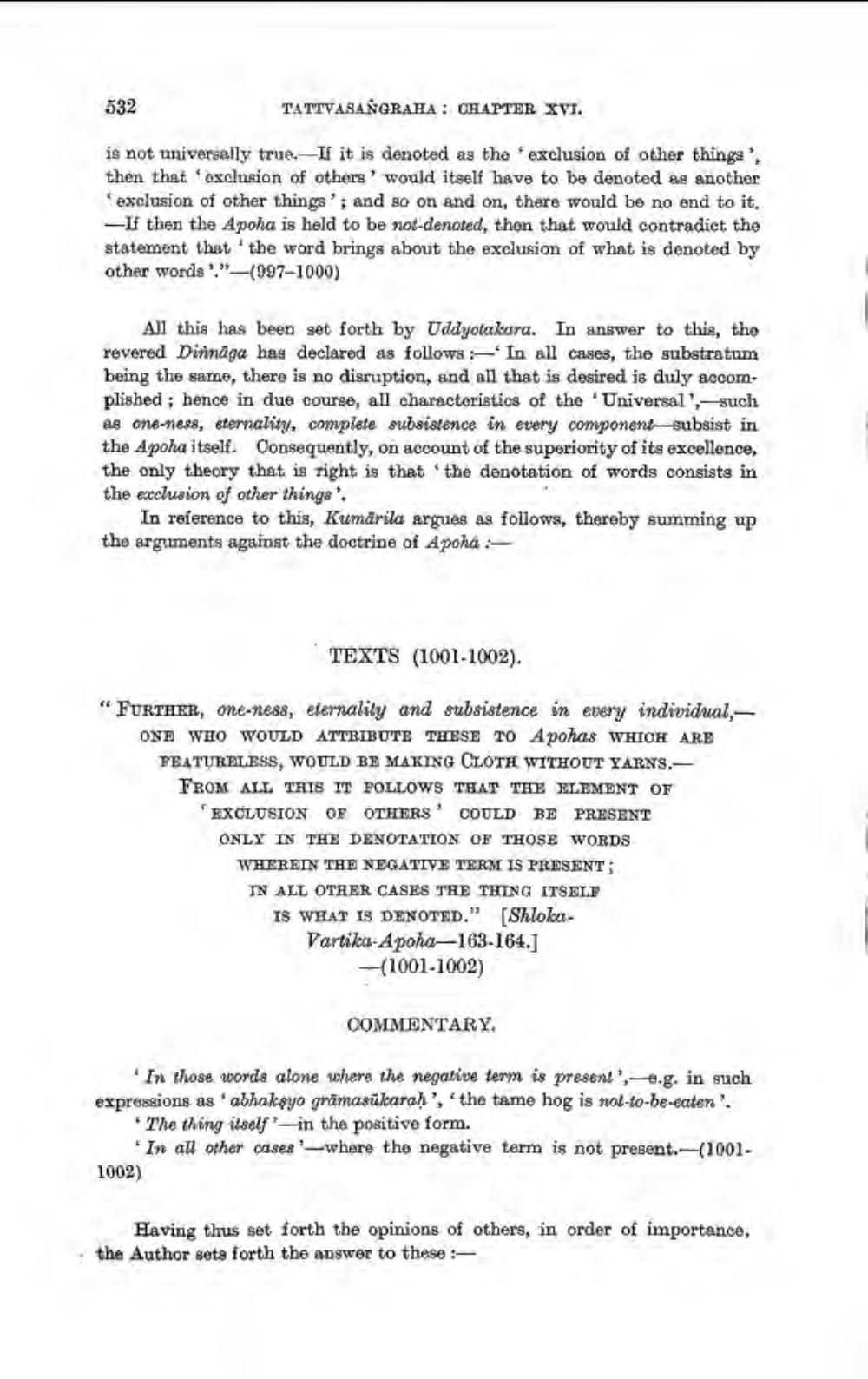________________
532
TATTVASANGRAHA: CHAPTER XVI.
is not universally true.-If it is denoted as the exclusion of other things, then that exclusion of others' would itself have to be denoted as another
exclusion of other things'; and so on and on, there would be no end to it. -If then the Apoha is held to be not-denoted, then that would contradict the statement that the word brings about the exclusion of what is denoted by other words!."-(997-1000)
All this has been set forth by Uddyotakara. In answer to this, the revered Dirinaga has declared as follows = In all cases, the substratum being the same, there is no disruption, and all that is desired is duly accomplished; hence in due course, all characteristics of the Universal', such as one-ess, eternality, complete subsistence in every component-subsist in the Apoha itself. Consequently, on account of the superiority of its excellence, the only theory that is right is that the denotation of words consists in the exclusion of other things.
In reference to this, Kumärila argues as follows, thereby summing up the arguments against the doctrine of A poha:
TEXTS (1001-1002).
"FURTHER, one-nesa, eternality and subsistence in every individual,
ONE WHO WOULD ATTRIBUTE THESE TO Apohas WHICH ARE FEATURELESS, WOULD BE MAKING CLOTH WITHOUT YARNS.FROM ALL THIS IT FOLLOWS THAT THE ELEMENT OF
EXCLUSION OF OTHERS' COULD BE PRESENT ONLY IN THE DENOTATION OF THOSE WORDS WHEREIN THE NEGATIVE TERM IS PRESENT; IN ALL OTHER CASES THE THING ITSELF IS WHAT IS DENOTED." [ShlokaVartika-Apoha-163-164.]
-(1001-1002)
COMMENTARY.
In those words alone where the negative term is present', -e.g. in such expressions as abhakeyo grāmasukarah', 'the tame hog is not-to-be-eaten!
The thing itself-in the positive form.
In all other cases where the negative term is not present.-(10011002)
Having thus set forth the opinions of others, in order of importance, the Author set forth the answer to these :




